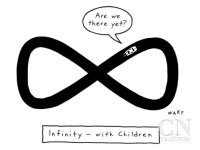ryan
Veteran Member
- Joined
- Jun 26, 2010
- Messages
- 4,668
- Location
- In a McDonalds in the q space
- Basic Beliefs
- a little of everything
Easily. Don't equate passing time with time that has passed.
If the universe had an infinite regress of time, do you agree that there would be an infinite number of hours before today?

